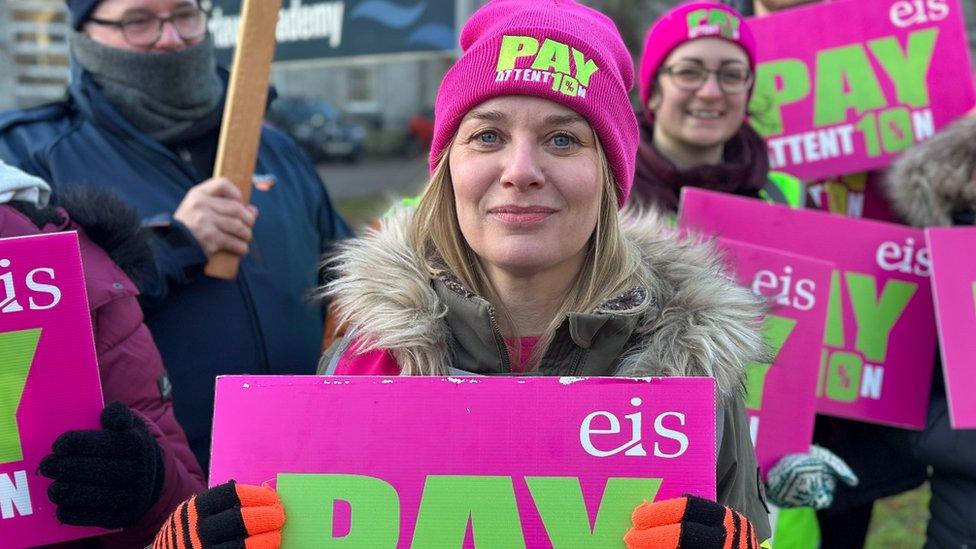Strikes in Scotland: Who is on strike and why?
- Published
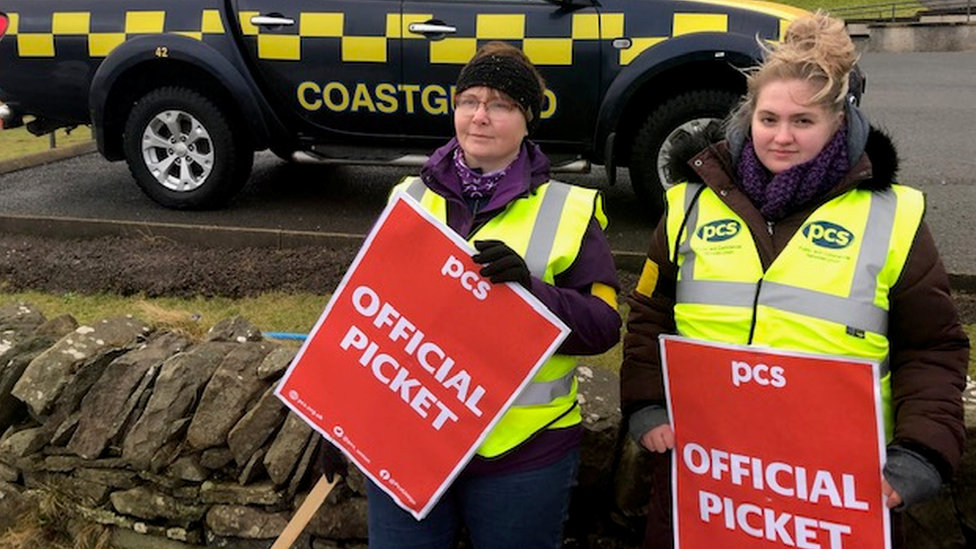
Coastguard officers in Shetland were on strike during Wednesday's nationwide day of action
Thousands of workers in Scotland have joined the UK's biggest day of industrial action in a decade.
The strikes are the latest is a series of industrial disputes that have largely been sparked by pay rises failing to keep up with soaring inflation rates and the cost of living crisis.
Trade unions are also angry at UK government plans to limit the right to strike of workers in some key sectors.
Here is a list of who is on strike, and who could be joining them in the future.
Schools
In November, teachers in Scotland began their first national pay strike since the 1980s, with a day of action which closed almost all state primary and secondary schools.
Members of Scotland's largest teaching union, the Educational Institute of Scotland (EIS), walked out along with members of the Association of Head Teachers and Deputes Scotland (AHDS), which represents senior staff in primary schools.
In January, these two unions were joined by members of the Scottish Secondary Teachers' Association (SSTA) and the NASUWT for a day of action which closed most primary schools, followed by a day which closed most secondaries.
Since then we have seen a programme of rolling strikes that his hit schools in two local authorities per day. Teachers in Clackmannanshire and Aberdeen were on the picket lines on Wednesday.
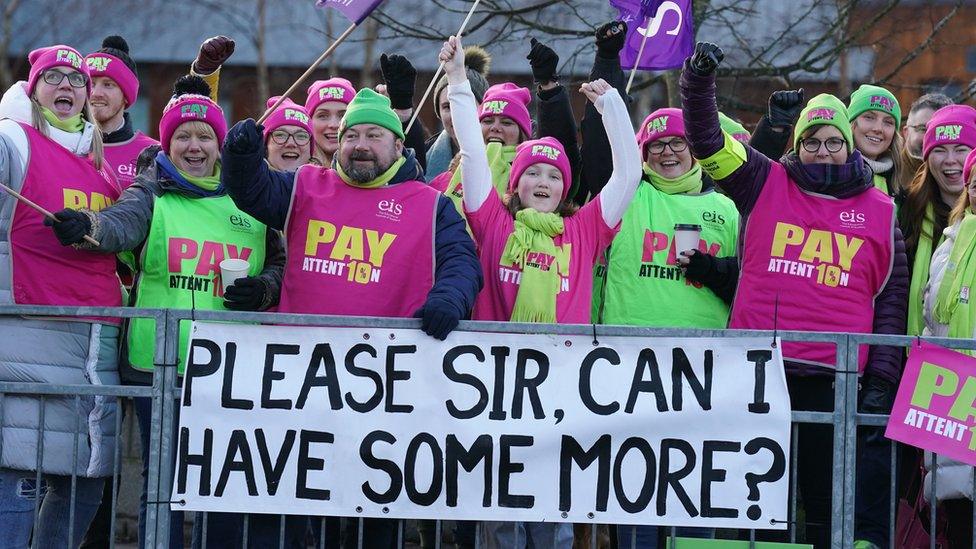
Two more Scotland-wide strikes involving all four unions are scheduled for 28 February and 1 March, followed by another three weeks of rolling strikes.
Teachers want a 10% pay rise. Most are being offered a 5% increase although that rises to 6.85% for the lowest paid and drops below 5% for those on the highest salaries because the rise is capped at £3,000 for staff who earn more than £60,000 per annum.
The Scottish government claims that, under its offer, fully qualified teachers in Scotland would be paid more than £7,500 more, external than their counterparts in England.
In the 2021/22 school year, state school classroom teachers were paid an average of £38,982 in England; £39,009 in Wales; and £40,026 in Scotland. An equivalent figure for Northern Ireland was not available.
Universities
Nationwide industrial action has also hit Scottish universities. Members of the University and College Union (UCU) are going on strike on 18 days between February and March, starting on Wednesday 1 February.
UCU members at seven Scottish universities - Abertay, Edinburgh Napier, Glasgow Caledonian, Glasgow School of Art, Queen Margaret, Robert Gordon and the University of the West of Scotland - are striking over pay and conditions.
Members at the Scottish Association for Marine Science in Oban, which is part of the University of the Highlands and Islands, are taking action over pensions.
Members at eight Scottish universities - Aberdeen, Dundee, Edinburgh, Glasgow, Heriot-Watt, St Andrews, Stirling and Strathclyde - are walking out over both issues.
NHS
The Scottish government's pay offer to NHS workers for 2022/23, which averaged 7.5%, was accepted by the Unison and Unite unions but rejected by the Royal College of Nursing (RCN), the Royal College of Midwives (RCM) and the GMB union, which represents staff in the Scottish Ambulance Service as well as the NHS.
Although RCN, RCM and GMB members voted for industrial action, their leaders agreed not to announce strike dates while negotiations took place.
The talks are now focused on 2023/24 pay although the Scottish government has reportedly agreed to backdate any agreed increase by three months to January 2023.
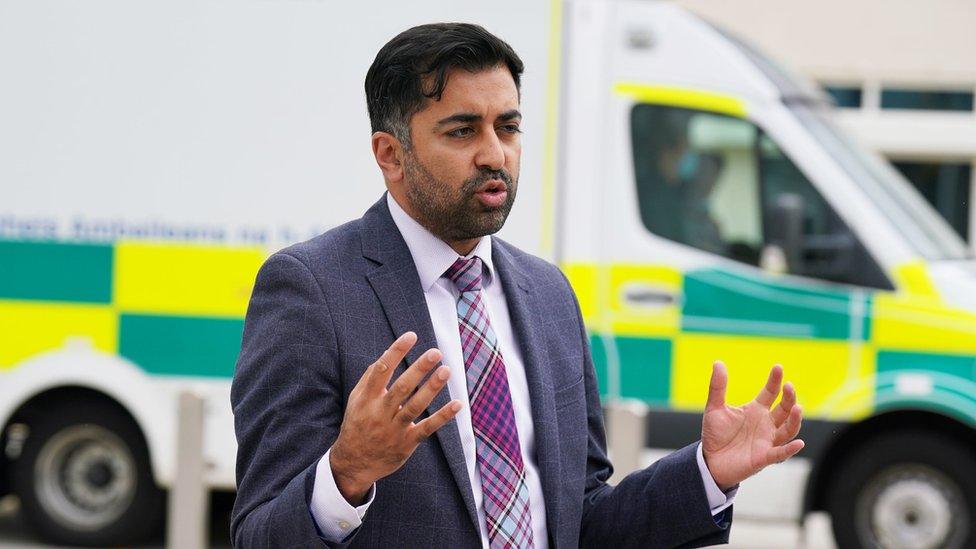
Any strike action by nurses would pile further pressure on Health Secretary Humza Yousaf
On 13 January the two sides were said to be entering an "intensive period of negotiations" which, it was predicted, could take several weeks.
First Minister Nicola Sturgeon and Health Secretary Humza Yousaf have been personally involved in the talks.
RCN chief executive Pat Cullen said she had left Ms Sturgeon in no doubt that nurses "will take strike action if the proposals being outlined do not deliver a significant improvement by the end of February."
All three unions still have mandates for industrial action. If they do strike it would be a blow for Ms Sturgeon but perhaps especially for Mr Yousaf, who is under intense political pressure over his handling of the wider NHS crisis.
Rail
A long-running dispute over railway pay, job security and working conditions continues to affect cross-border services between Scotland and England.
The train drivers' union Aslef is striking on 1 February and again on 3 February along with the few hundred train drivers who are RMT members.
Avanti West Coast, which runs most passenger services on the west coast main line between London and Glasgow, said no trains would operate on either day.
On the east coast main line, London North Eastern Railway (LNER) said it would run an extremely limited timetable with just five trains in each direction between London King's Cross and Edinburgh along with a handful of other services.
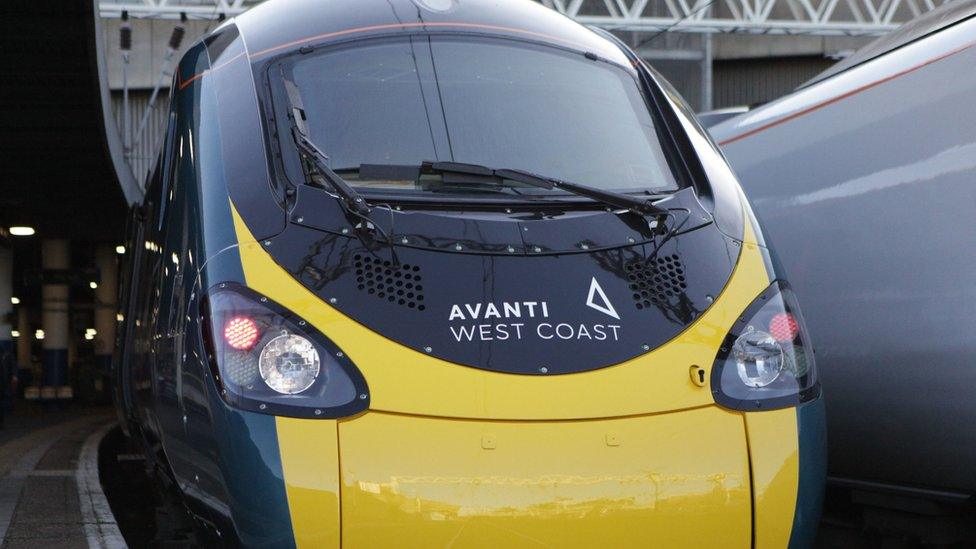
No Avanti West Coast trains ran between Glasgow and London on the strike days
Both the Caledonian Sleeper and ScotRail said their services would be unaffected by the action.
Staff at ScotRail accepted an improved pay offer in November, averting separate planned strikes on their services.
The nationalised rail operator said a rise of 5% plus £750 equated to an increase of 7.5% for staff such as conductors and ticket examiners, and 8.5% for workers on the lowest pay.
Civil servants
Tens of thousands of civil servants belonging to the PCS union went on strike across the UK on 1 February.
In Scotland, more than 70 picket lines were listed on the PCS website with union members also holding a rally in Edinburgh city centre at noon.
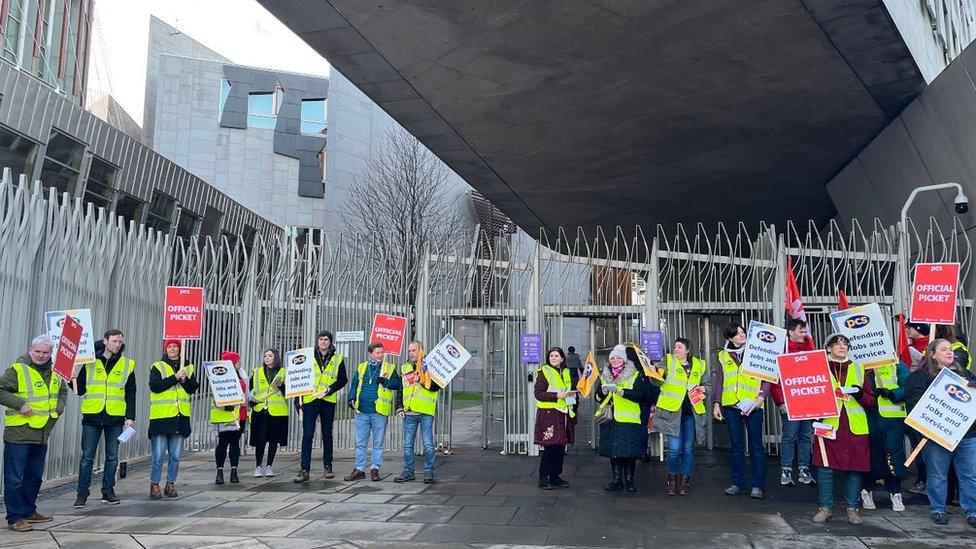
Scottish Parliament staff were among the civil servants who joined the PCS strike
Affected services in Scotland included - but were not limited to - courts, job centres, driving test centres, various Scottish and UK government departments and quangos, registrars, museums and galleries, the passport office, Ofgem, the Crown Office and Procurator Fiscal Service, the Crown Estate, the Scottish Prison Service and the Scottish Parliament.
Firefighters
Firefighters across the UK voted this week to strike for the first time in 20 years but no dates have yet been set. This would include firefighters in Scotland. Members of the Fire Brigades Union (FBU) rejected a 5% pay rise and are seeking "a credible offer." The UK government says a strike would be "disappointing and concerning."
Right to strike
The Scottish Trades Union Congress (STUC) was to hold a protest in Glasgow on 1 February over UK government legislation which would give its ministers the power to ensure minimum service levels during industrial action in certain critical sectors.
These would include hospitals, firefighting and the railways, and would curtail the right of some workers to strike.
Labour and the SNP also oppose the new law, which Ms Sturgeon and Prime Minister Rishi Sunak discussed over dinner in Inverness last month.
Inflation
Inflation remains near a 40-year high which goes a long way towards explaining much of the current industrial strife.
Although pay has been rising at its fastest rate in more than 20 years it is still failing to keep up with the rising cost of living.
Related topics
- Published1 February 2023
